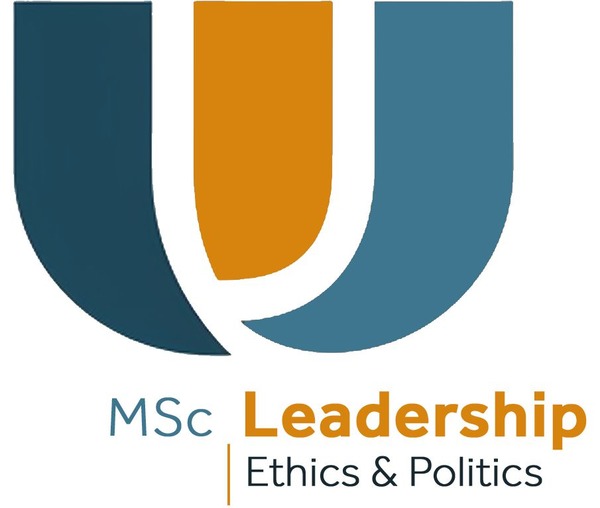Political Morality, War, and Pacifism (LEPE6)
Ευάγγελος Πρωτοπαπαδάκης
Syllabus
Course Syllabus
I. The problem of dirty hands.
II. The problem of dirty hands in democratic contexts.
III. Fallacy and deception in politics.
IV. Integrity and other ethical principles of behavior for public officials.
V. The ethics of secession.
VI. The Ethics of Just War: Jus ad bellum.
VII. The Ethics of Just War: Jus in bello.
VIII. The problem of conscientious objection.
Course Objectives/Goals
• The aim is to introduce students to fundamental ethical issues related to the exercise of politics and the conduct of war.
• Various ethical problems arising during the exercise of democratic power will be identified and evaluated.
• The basic principles governing just war will be explained.
• The basic principles governing the conduct of war will be elucidated.
• The philosophical contemplation involved in conscientious objection will be made understandable.
• The nature of difficult ethical cases related to the subject matter of the course will be understood, and the relevant philosophical issues will be presented.
Instructional Methods
This course employs a dynamic blend of instructional methods to ensure a comprehensive learning experience. With a focus on engagement and flexibility, the instructional approach comprises 75% face-to-face teaching, fostering direct interaction between instructors and students in a traditional classroom setting. Additionally, 25% of the course involves distant teaching, which can be delivered either synchronously or asynchronously. This remote component allows students to access course materials, participate in discussions, and engage with learning activities at their own pace, leveraging online platforms and resources. By combining face-to-face interaction with remote learning opportunities, the course aims to cater to diverse learning styles and preferences, facilitating deeper understanding and collaboration among students while accommodating individual schedules and needs.
Assessment Methods
- 20%: Participation
- 20%: Oral presentation
- 60%: Written assignment
Prerequisites/Prior Knowledge
This module has no prerequisites in the curriculum or prior knowledge requirements.
Instructors
Instructors for the course will be announced shortly.
Textbooks
To be added soon.
Bibliography
- Allhoff et al., (eds.), Routledge Handbook of Ethics of War: Just War Theory in the Twenty-first Century, New York 2013.
- Bell, (ed.), Ethics and World Politics, Oxford 2010.
- Buchanan and E. Levinson, “Secession” in The Stanford Encyclopedia of Philosophy, 2021.
- Christopher, The Ethics of War and Peace, Englewood Cliffs 1994.
- Clark, Waging War: A Philosophical Introduction, Oxford 1990.
- Clifford, “Legalizing Selective Conscientious Objection,” Public Reason 3 (2011): 22-38.
- A. J. Coady, Morality and Political Violence, Cambridge 2007.
- Cohen et al. (eds.), War and Moral Responsibility, Princeton 1974.
- Copp, “International law and Morality in the Theory of Secession,” The Journal of Ethics 2 (1998): 219-245.
- Forrester, In the Shadow of Justice: Postwar Liberalism and the Remaking of Political Philosophy, Princeton 2019. (Chapter 3)
- Gutmann and D. Thompson (eds.), Ethics and Politics: Cases and Comments, Belmont 2006.
- Hall (ed.), Political Ethics: A Handbook, Princeton 2022.
- Kis, Politics as a Moral Problem, Budapest, 2008.
- Madsen and J. A. Shafritz (eds.), Essentials of Government Ethics, New York 1992.
- May (ed.), War: Essays in Political Philosophy, Cambridge 2008.
- J. Mearsheimer, Why Leaders Lie: The Truth About Lying in International Politics, Oxford 2011.
- Mendus, Politics and Morality, Cambridge 2009.
- Peonidis,” The Dirty Hands Problem in a Democratic Context” in Philosophy and Crisis: Responding to Challenges to Ways of Life in the Contemporary World, Golfo Maggini et al. (eds.), Ioannina-Washington DC 2017.
- Robinson, “Selective Conscientious Objection” in The Routledge Handbook of Military Ethics, G. Lucas (ed.), London 2015.
- D. F. Thompson, Political Ethics and Public Office, Cambridge Mass. 1987.
I. The problem of dirty hands.
II. The problem of dirty hands in democratic contexts.
III. Fallacy and deception in politics.
IV. Integrity and other ethical principles of behavior for public officials.
V. The ethics of secession.
VI. The Ethics of Just War: Jus ad bellum.
VII. The Ethics of Just War: Jus in bello.
VIII. The problem of conscientious objection.
• The aim is to introduce students to fundamental ethical issues related to the exercise of politics and the conduct of war.
• Various ethical problems arising during the exercise of democratic power will be identified and evaluated.
• The basic principles governing just war will be explained.
• The basic principles governing the conduct of war will be elucidated.
• The philosophical contemplation involved in conscientious objection will be made understandable.
• The nature of difficult ethical cases related to the subject matter of the course will be understood, and the relevant philosophical issues will be presented.
This course employs a dynamic blend of instructional methods to ensure a comprehensive learning experience. With a focus on engagement and flexibility, the instructional approach comprises 75% face-to-face teaching, fostering direct interaction between instructors and students in a traditional classroom setting. Additionally, 25% of the course involves distant teaching, which can be delivered either synchronously or asynchronously. This remote component allows students to access course materials, participate in discussions, and engage with learning activities at their own pace, leveraging online platforms and resources. By combining face-to-face interaction with remote learning opportunities, the course aims to cater to diverse learning styles and preferences, facilitating deeper understanding and collaboration among students while accommodating individual schedules and needs.
- 20%: Participation
- 20%: Oral presentation
- 60%: Written assignment
This module has no prerequisites in the curriculum or prior knowledge requirements.
Instructors for the course will be announced shortly.
To be added soon.
- Allhoff et al., (eds.), Routledge Handbook of Ethics of War: Just War Theory in the Twenty-first Century, New York 2013.
- Bell, (ed.), Ethics and World Politics, Oxford 2010.
- Buchanan and E. Levinson, “Secession” in The Stanford Encyclopedia of Philosophy, 2021.
- Christopher, The Ethics of War and Peace, Englewood Cliffs 1994.
- Clark, Waging War: A Philosophical Introduction, Oxford 1990.
- Clifford, “Legalizing Selective Conscientious Objection,” Public Reason 3 (2011): 22-38.
- A. J. Coady, Morality and Political Violence, Cambridge 2007.
- Cohen et al. (eds.), War and Moral Responsibility, Princeton 1974.
- Copp, “International law and Morality in the Theory of Secession,” The Journal of Ethics 2 (1998): 219-245.
- Forrester, In the Shadow of Justice: Postwar Liberalism and the Remaking of Political Philosophy, Princeton 2019. (Chapter 3)
- Gutmann and D. Thompson (eds.), Ethics and Politics: Cases and Comments, Belmont 2006.
- Hall (ed.), Political Ethics: A Handbook, Princeton 2022.
- Kis, Politics as a Moral Problem, Budapest, 2008.
- Madsen and J. A. Shafritz (eds.), Essentials of Government Ethics, New York 1992.
- May (ed.), War: Essays in Political Philosophy, Cambridge 2008.
- J. Mearsheimer, Why Leaders Lie: The Truth About Lying in International Politics, Oxford 2011.
- Mendus, Politics and Morality, Cambridge 2009.
- Peonidis,” The Dirty Hands Problem in a Democratic Context” in Philosophy and Crisis: Responding to Challenges to Ways of Life in the Contemporary World, Golfo Maggini et al. (eds.), Ioannina-Washington DC 2017.
- Robinson, “Selective Conscientious Objection” in The Routledge Handbook of Military Ethics, G. Lucas (ed.), London 2015.
- D. F. Thompson, Political Ethics and Public Office, Cambridge Mass. 1987.
Calendar
Announcements
- - There are no announcements -

